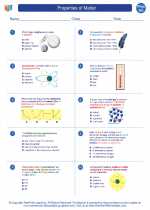Adenoids: An Explanation
Adenoids are a part of the lymphatic system, which is a network of tissues and organs that help the body fight off infections. They are located at the junction of the back of the throat and the nasal cavity. Adenoids are made up of lymphoid tissue and are similar to the tonsils, which are located at the back of the throat.
Functions of Adenoids
Adenoids play a role in the immune system by trapping harmful bacteria and viruses that are breathed in through the nose. They help to produce antibodies to fight off these pathogens and prevent them from causing infections in the body. Adenoids are particularly active during childhood, as they are part of the body's defense system during early years of exposure to various pathogens.
Adenoid Problems
Sometimes, adenoids can become enlarged or infected, leading to issues such as difficulty breathing, snoring, sleep apnea, and frequent infections. In some cases, if adenoid problems persist and significantly affect a person's health, a doctor may recommend their removal through a surgical procedure called adenoidectomy.
Studying Adenoids
When studying adenoids, it's important to understand their location, structure, and function within the immune system. It's also crucial to be familiar with the potential problems associated with adenoids, as well as the treatment options available for those issues.
Study Guide Questions:
- Where are the adenoids located in the body?
- What is the function of adenoids in the immune system?
- What are some problems that can arise with adenoids?
- What is the surgical procedure used to remove adenoids?
- Why are adenoids particularly active during childhood?
Understanding adenoids and their role in the body's defense system is important for anyone studying human anatomy and physiology, as well as for those interested in the medical field.
.◂Physics Worksheets and Study Guides High School. Properties of Matter

 Worksheet/Answer key
Worksheet/Answer key
 Worksheet/Answer key
Worksheet/Answer key
 Worksheet/Answer key
Worksheet/Answer key
